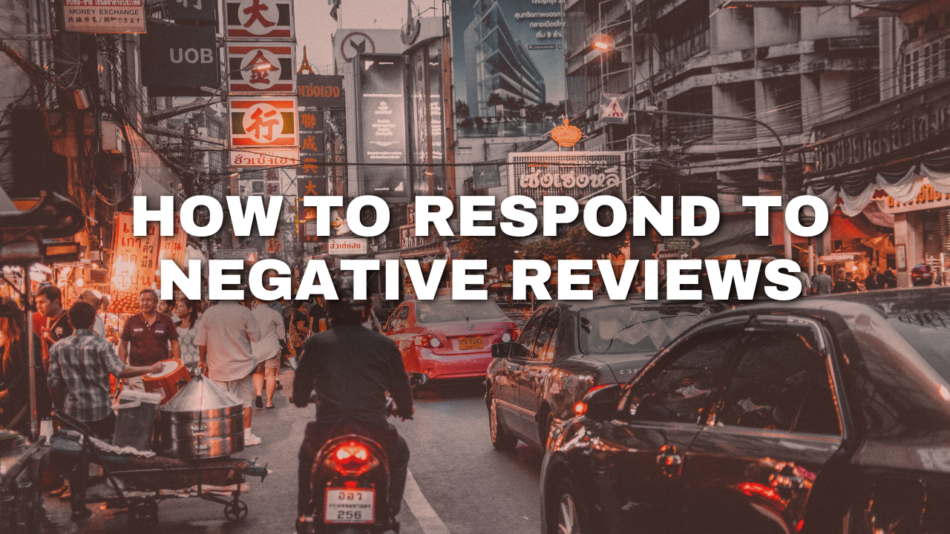
Learn effective strategies on how to respond to negative reviews and turn them into positive experiences. Discover expert tips and insights to manage online feedback gracefully. In today’s digital age, online reviews wield immense power over businesses. A single negative review can tarnish a company’s reputation and deter potential customers. However, mastering the art of responding to negative reviews can transform these setbacks into opportunities for growth and improvement. In this comprehensive guide, we delve into effective strategies and best practices for handling negative feedback with grace and professionalism.
Understanding the Impact of Negative Reviews
Negative reviews can have a significant impact on a business’s bottom line. Research shows that over 80% of consumers consider online reviews before making a purchase decision. Furthermore, a single negative review can cost a business up to 30 customers. Therefore, it’s crucial for businesses to proactively address and manage negative feedback to safeguard their reputation and maintain customer trust.
The Importance of Prompt Responses
Promptness is key when it comes to responding to negative reviews. Customers value timely acknowledgment of their concerns, which demonstrates a commitment to customer satisfaction. Delayed responses can exacerbate the situation and lead to further dissatisfaction. By addressing issues promptly, businesses can mitigate damage and show customers that their feedback is valued.
Crafting Professional Responses
When crafting responses to negative reviews, maintaining a professional and empathetic tone is paramount. Acknowledge the customer’s concerns, apologize for any inconvenience, and offer a solution or resolution where possible. Avoid being defensive or dismissive, as this can escalate the situation and alienate the customer further. Remember, the goal is to win back trust and demonstrate a commitment to customer satisfaction.
Providing Solutions and Acknowledging Mistakes
In many cases, negative reviews stem from genuine issues or shortcomings in products or services. Instead of deflecting blame or making excuses, take ownership of mistakes and offer concrete solutions. Whether it’s issuing a refund, providing a replacement, or offering a discount on future purchases, proactive measures can help appease dissatisfied customers and restore faith in your brand.
Implementing Feedback for Improvement
Negative reviews, though challenging, provide valuable insights into areas where businesses can improve. Analyze recurring themes or issues mentioned in reviews and use this feedback to refine products, services, or operational processes. By embracing constructive criticism and implementing changes accordingly, businesses can enhance customer satisfaction and loyalty in the long run.
Leveraging Positive Reviews to Counterbalance Negativity
While negative reviews garner attention, positive reviews play an equally crucial role in shaping perceptions. Encourage satisfied customers to leave positive feedback and testimonials to counterbalance the impact of negative reviews. Highlighting glowing testimonials and success stories can reassure prospective customers and showcase the positive experiences others have had with your brand.
Monitoring and Managing Online Reputation
In today’s hyper-connected world, monitoring and managing online reputation is essential for businesses of all sizes. Invest in robust reputation management tools and strategies to track mentions, reviews, and sentiments across various online platforms. Promptly address any negative feedback and engage with customers transparently and constructively.
Empowering Employees as Brand Ambassadors
Employees serve as the frontline ambassadors of your brand and play a pivotal role in shaping customer experiences. Provide comprehensive training and guidelines on how to respond to customer feedback, both positive and negative. Equip employees with the tools and knowledge they need to address customer concerns effectively and uphold the brand’s reputation.
Cultivating a Culture of Continuous Improvement
Responding to negative reviews is not just about damage control; it’s about fostering a culture of continuous improvement and excellence. Encourage feedback from both customers and employees and use this feedback to drive innovation and growth. By embracing feedback as a catalyst for positive change, businesses can adapt and thrive in today’s competitive landscape.
FAQs
How should I respond to a negative review that contains false information?
Address the inaccuracies politely and factually, providing evidence or clarification where necessary. Focus on correcting misinformation while maintaining a professional demeanor.
Is it advisable to delete negative reviews from our online platforms?
Deleting negative reviews can undermine trust and transparency. Instead, focus on addressing the concerns raised and showcasing your commitment to customer satisfaction.
Should I respond publicly or privately to negative reviews?
Evaluate the nature of the feedback and the level of urgency. In most cases, responding publicly demonstrates transparency and accountability, but certain situations may warrant private communication to resolve issues discreetly.
How can I prevent negative reviews in the first place?
Focus on delivering exceptional products and services, proactively seek feedback from customers, and address any issues or concerns promptly. Building strong relationships with customers can mitigate the likelihood of negative reviews.
What if a negative review escalates into a heated exchange?
Remain calm and composed, and refrain from engaging in arguments or personal attacks. Redirect the conversation to a private channel and strive to resolve the issue amicably and professionally.
How can I leverage negative feedback to drive positive change within my organization?
View negative feedback as an opportunity for growth and improvement. Analyze recurring themes or pain points mentioned in reviews and use this insight to refine processes, enhance products, and elevate the overall customer experience.
Conclusion
In conclusion, effectively responding to negative reviews requires a combination of empathy, professionalism, and proactive communication. By acknowledging customer concerns, providing solutions, and leveraging feedback for improvement, businesses can turn negative experiences into valuable opportunities for growth and learning. Embrace feedback as a catalyst for positive change, and prioritize customer satisfaction to build enduring relationships and foster brand loyalty.